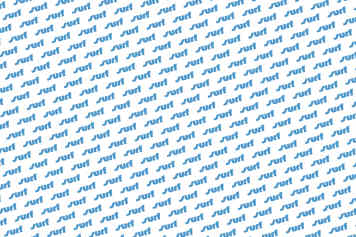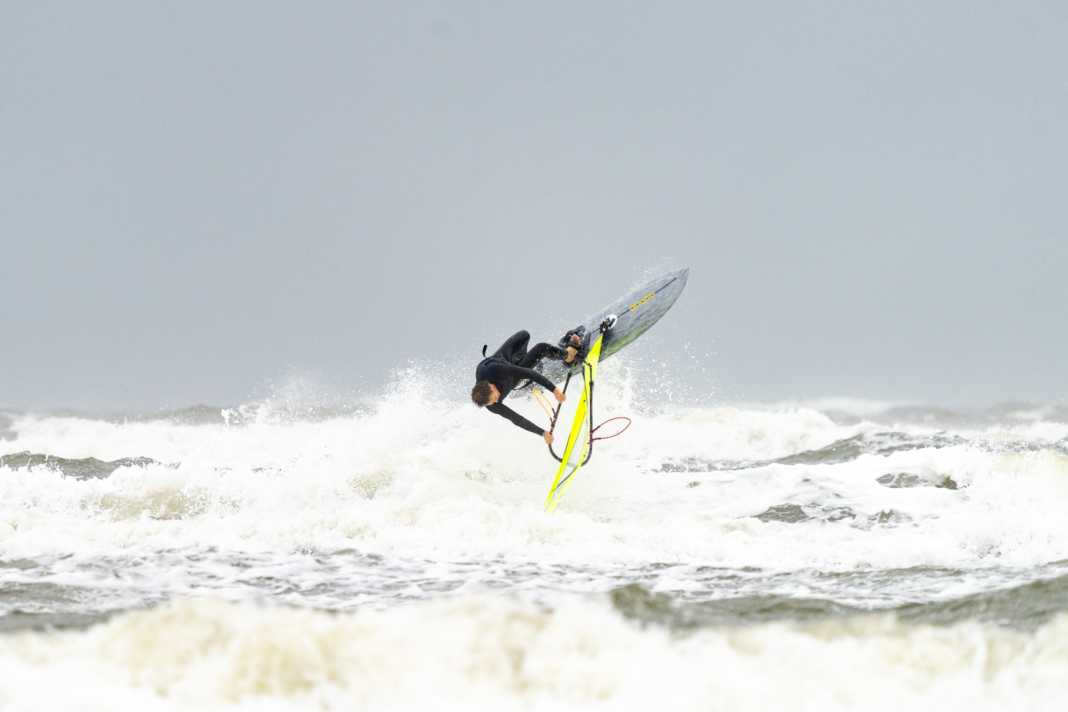





The Cube wave model was always designed as an all-rounder within the Quatro range. This has not changed with the launch of the Cube 6, although the shape and construction have been significantly revised.
On land
You notice a difference as soon as you lift it up - the Cube 87 we tested is pleasingly light - 5.94 kilos is quite respectable for a board of this size. The weight reduction was achieved by installing lighter fin boxes and a new mast track. The design is also minimalist - instead of colourful graphics, you now have a clear view of the laminate, which alone saves almost 150 grams according to the manufacturer. Keith Teboul's designers have worked hard on the shape: The outline now appears much rounder, with a tapered bow. The underwater hull is dominated by a double concave V, which transitions into a slight mono-concave at the rear, directly in front of the fins.
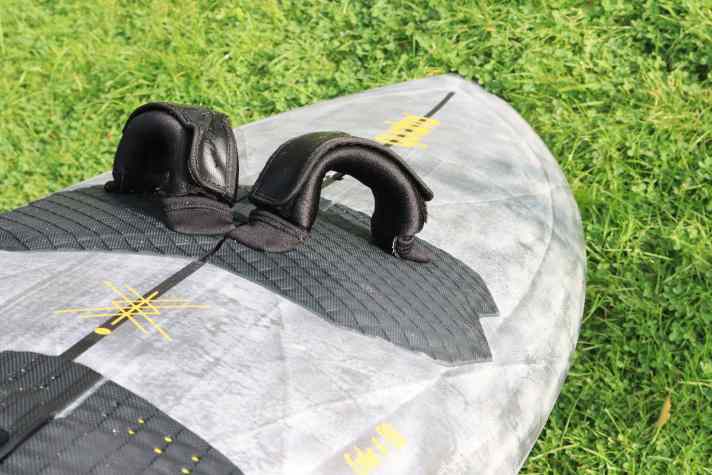
The shape is supplied with the tried and tested MFC straps, which fit snugly around the foot. There are double screws at the back, but the straps are fixed at the front with just one screw on each side. The pads are slightly harder, but still offer sufficient cushioning. The scope of delivery also includes four MFC fins (15.5 & 9 cm), which are mounted in US box boxes.
On the water
The fact that the new Shape has little in common with its predecessor is immediately apparent when you first set off - the powerful acceleration of its predecessor (Click here for a test of the Quatro Cube 2022/2023) is now somewhat more moderate. The Cube 6 is by no means a bad glider, but in winds at the lower limit you would wish for a little more agility and liveliness. The good news is that with the first gust, this small shortcoming fades into the background and the new Quatro Cube really comes into its own as soon as you are halfway powered up. Then it runs freely enough through the chop and once again offers the rail-like riding sensation that once characterised the older Cube models. Our tuning tip: Mount the straps a little further back and also screw the base plate in the centre or slightly behind it, which makes the board a little freer and more lively.

Especially in rough conditions and motorised with small sails, the control of the Cube is convincing across the board, the board shines with a nice smoothness and starts softly in the chop. But the changes also have an effect when it comes to turning: whereas the previous model was more of a board that liked to carve medium and long radii with a lot of speed and sometimes refused extremely tight snaps, the new model offers noticeably more potential again, especially for really tight turns. Carving a long bottom turn with a lot of grip over the rail and then pulling up tightly and vertically to the lip of the wave via the back foot is something the Cube 6 can do much more nimbly and better than last year. The radii are pleasantly smooth, which means that the shape also opens up the possibility of 360s and radical turns for very good wave surfers.
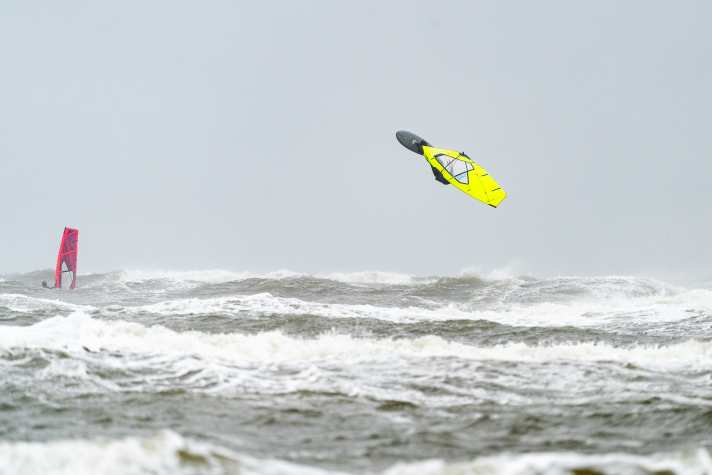
Quatro Cube - the conclusion
The new Quatro Cube glides a little more smoothly and less lively in light winds, but is a successful performance wave board that now offers the full range of controlled carves and tight snaps on the wave. The board is fun both on windy days on the Baltic Sea and at select down-the-line spots.
Wave all-rounder; turning characteristics, control
Fin with FCS key
Quatro Cube - technical data
- Test model: Quatro Cube 6 86
- Volume: 86 litres
- Length: 223.5 cm
- Width: 58.5 cm
- Weight (surf measurement): 5.94 kilos
- Finns: MFC 2x 15.5cm; 2x 9cm (US box)
- Price: 2590 Euro
- Available sizes: 74/78/82/86/92/102 litres
- Contact: Quatro website
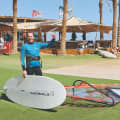
Manuel Vogel
Editor surf
Manuel Vogel, born in 1981, lives in Kiel and learned to windsurf at the age of six at his father's surf school. In 1997, he completed his training as a windsurfing instructor and worked for over 15 years as a windsurfing instructor in various centers, at Kiel University sports and in the coaching team of the “Young Guns” freestyle camps. He has been part of the surf test team since 2003. After completing his teaching degree in 2013, he followed his heart and started as editor of surf magazine for the test and riding technique sections. Since 2021, he has also been active in wingfoiling - mainly at his home spots on the Baltic Sea or in the waves of Denmark.
